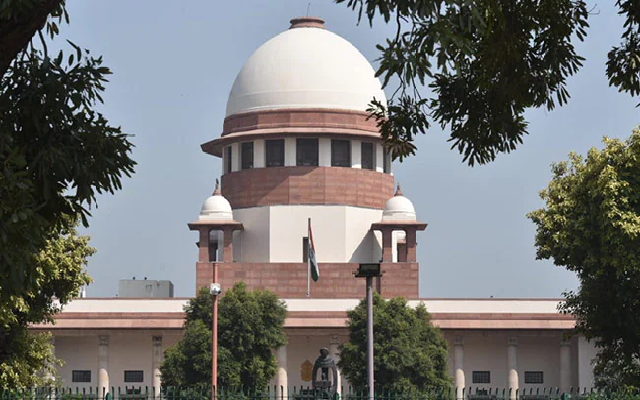New Delhi: Describing the matter as “significant,” the Supreme Court emphasized on Monday that denying child-care leave to a mother caring for a child with disabilities would breach the State’s constitutional obligation to ensure women’s equal participation in the workforce.
A bench headed by Chief Justice D Y Chandrachud and Justice J B Pardiwala directed the formation of a committee led by the chief secretary of Himachal Pradesh to deliberate on the policy regarding the grant of child-care leaves (CCLs) to employed women with disabled children.
The court underscored the gravity of the issue, asserting that women’s involvement in the workforce is not a privilege but a constitutional imperative, and as a responsible employer, the State cannot overlook this.
Furthermore, the apex court mandated the inclusion of the Central Government in the proceedings and enlisted the support of Additional Solicitor General Aishwarya Bhati for assistance.
Simultaneously, it instructed state authorities to review the request for CCL from the petitioner, an assistant professor in the Department of Geography, whose son has a genetic disorder and has undergone multiple surgeries. She had utilized all her sanctioned leave entitlements for her son’s treatment, and the central civil service regulations provided for CCLs.
Highlighting the constitutional significance of child-care leave, the bench stressed its role in ensuring women’s equal opportunities in the workforce. It cautioned that denying such leave might force working mothers to quit their jobs, particularly those with children requiring special care.
The court directed the state government to align its CCL policy with the Rights of Persons with Disabilities Act, 2016, and constituted a committee comprising the chief secretary and relevant department secretaries to make a decision on the matter by July 31.
“The plea delves into areas of policy, and state policies must align with constitutional protections. We urge the Himachal Pradesh government to reconsider CCL provisions for mothers in line with the RPWD Act, especially those raising children with special needs,” remarked the Chief Justice.
Previously, the Supreme Court had served notices to the state government and the director of higher education regarding the plea on October 29, 2021. Later, it also requested a response from the commissioner under The Persons with Disabilities (Equal Opportunities, Protection of Rights and Full Participation) Act, 1995.
Read More :




